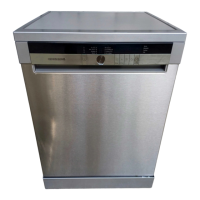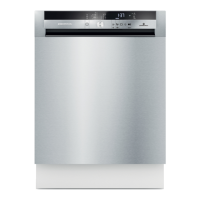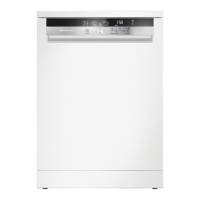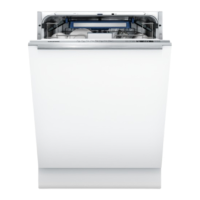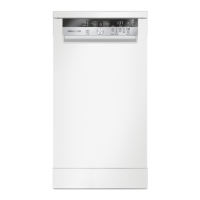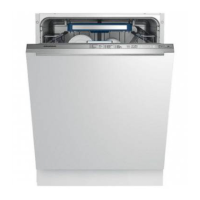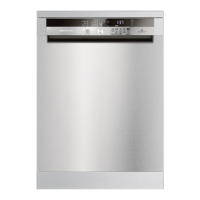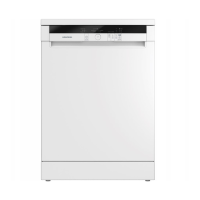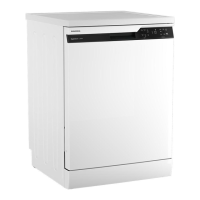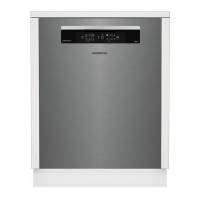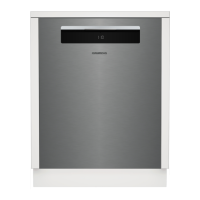DISHWASHER / USER INSTRUCTIONS
39 / 55
EN
Troubleshooting
There is a different odour in the machine
C
A new machine has a peculiar odour. It will fade out after a couple of washes.
• Filters are clogged. >>> Check if the filter system is clean. Clean the filter system regularly
as illustrated in section “Cleaning and Care”.
• Dirty dishes are kept in dishwasher for 2-3 days. >>> If you are not going to start the
machine right after you have put the dishes into it, remove the remnants on the dishes and
run the Prewash programme without detergent every 2 days. In such cases, do not close
the door of the machine completely in order to avoid odour build up in machine. You can
also use commercially available odour removers or machine cleaners.
Rust, discoloration or surface deterioration occurs on dishes
• Salt leakage exists. >>> Salt may cause deterioration and oxidation on metal surfaces.
Pay attention not to spill salt around the salt filling hole while adding salt. Make sure that
the salt reservoir lid is tightly closed after finishing the filling process. Run the prewash
programme to remove the salt that spilled inside the machine. Since the salt granules that
will remain under the lid will dissolve during prewash, causing the lid loosen, check the
lid once again at the end of the programme.
• Salty food remnants have remained on dishes for a long time. >>> If cutlery soiled with
such foods will be kept waiting in machine, dirt must be removed by prewash or dishes
must be washed without being kept waiting.
• Electric installation is not grounded. >>>Check if your machine is connected to the actual
grounding line. Otherwise, the static electric created in the product causes arcs on the
surfaces of metal items creating pores, removing the protective cover on the surface and
causing discoloration.
• Intensive cleansers such as bleaches are used. >>> Protective cover on metal surfaces
gets damaged and looses its efficiency in time when it gets in contact with cleansers such
as bleach. Do not wash your dishes with bleach.
• Metal items particularly such as knives are used for purposes other then their intended
uses. >>> Protective cover on the edges of knives may get damaged when they are used
for purposes such as opening cans. Do not use metal kitchen utensils out of their intended
uses.
• Cutlery are made of low quality stainless steel. >>> Corrosion on such items is inevitable;
they should not be washed in dishwashers.
• Kitchen utensils that are already corroded are washed in dishwasher. >>> Rust on a
corroded item can migrate to other stainless steel surfaces and cause corrosion on those
surfaces as well. Such items should not be washed in dishwashers.
Detergent remains in detergent dispenser.
• Detergent dispenser was damp when adding detergent. >>> Make sure that the
detergent dispenser is dried well prior to filling it with detergent.
